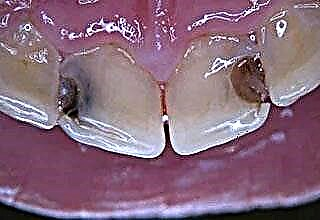Carnation is a spice obtained from the flower buds of an evergreen tree of the genus Myrtle. The plant has a huge arsenal of useful properties, therefore it is included in the herbal pharmacopoeia of Britain. In folk medicine, the agent is used as phototherapy as an adjunct to traditional treatment and prevention of diseases. One of the most significant effects of cloves is believed to lower blood pressure.
How does clove affect blood pressure?
All the effects of drugs depend on the presence of active substances in their composition. The presence of a large number of micro and macro elements presented in the table explains the wide range of properties of cloves.
| Vitamins | Minerals | Nutrients | Additional elements |
|---|---|---|---|
|
|
|
|
The main properties of cloves, which are used in traditional and folk medicine:
 anthelmintic (promotes the elimination of worms);
anthelmintic (promotes the elimination of worms);- eliminates pain;
- antifungal;
- hypoglycemic (lowers sugar levels);
- strengthens bones;
- improves the elimination of gases from the intestines;
- wound healing;
- antineoplastic;
- antitussive action;
- normalizes the menstrual cycle.
The mechanism of the effect of cloves on blood pressure
The polyetiological nature of hypertension requires a combined approach. Influence on the functioning of the hematopoietic, respiratory, digestive and immune systems is the basis of the hypotensive effect of the spice.
Pressure cloves are used for the following effects:
- thins and cleanses the blood;
- maintains elasticity, restores and strengthens the vascular wall, preventing its rupture (due to the presence of provitamin A and C);
- improves blood flow in the heart muscle;
- restores the nervous system (stress is one of the triggering factors in the onset and progression of the disease);
- relieves spasm of blood vessels and muscles, thereby reducing resistance, which is the main link in the development of hypertension (vitamin E);
- thanks to the complex of vitamins and microelements, it strengthens the heart muscle and improves the contractile function;
- due to its bactericidal properties, it relieves the aseptic inflammatory process in the vessels, which develops against the background of constantly increased pressure indicators.
Who needs to include cloves in food more: hypertensive or hypotensive?
For a very long time, there have been debates: can cloves be used for high blood pressure, since the plant has a slightly stimulating effect (accelerating blood flow). However, recent clinical studies have shown that the spice should be used as an antihypertensive agent in the diet of hypertensive patients. Since the vasodilating effect of the plant prevails over its other properties.
The use of pure form and in the form of infusions, decoctions has the opposite effect.
Folk recipes from cloves for patients with poor blood pressure
To get the desired effect, the spice must be applied every day in the right amount. Always start with small doses to avoid a sharp drop in blood pressure and allergic reactions.
The brewing of plant sticks has a weak effect on the body, the use of meal, ground seeds, and powder has a strong effect.
Recipe for high blood pressure cloves:
- Brew the tincture. To do this, take 5-6 sticks and pour a glass of boiled water. Let it brew for several hours, or better at night, and drink every morning.
- At the initial stages of the disease, meal is used according to the scheme: 7 days - at the tip of a knife, 21 days - 1/8 teaspoon once a day. Two-time admission is allowed after a month of the initial course.
- Pour 40 seeds with four glasses of clean water and bring to a boil over low heat. Wait until 1/2 liquid has evaporated. Use the remedy 1 teaspoon 3 times a day before meals.
- Put 15-20 cloves in a glass of warm water, leave warm for 12 hours. Use the product in the morning on an empty stomach.
For hypertension, cloves are prescribed by phytotherapists in the form of decoctions and infusions, since in its pure form the spice has tonic properties and is capable of increasing blood pressure indicators.
The most acceptable prescription for the treatment of hypertension and the duration of the course of using cloves for each patient should be determined by the doctor.
If signs of plant intolerance appear (skin rash or itching, nausea, feeling unwell), it is worth stopping the intake and informing the doctor about it.
When treating, it is important to remember that it is strictly forbidden to combine the spice with alcohol, even in small quantities.
Contraindications to herbal medicine with cloves:
- childhood;
- pregnancy (cloves can increase the tone of the uterus, which can lead to undesirable consequences);
- lactation period;
- tendency to allergies;
- infectious and autoimmune lesions of the digestive tract;
- stomach or duodenal ulcers during an exacerbation;
- inflammatory processes in the liver or gallbladder;
- hyperacid gastritis;
- pathology of the blood coagulation system.
How to choose the right plant buds?
To get a good therapeutic effect, you need to carefully choose your clove.
Simple Tips:
- The head should have a brownish red color and an oily sheen.
- If you see that the buds are dry and wrinkled, the spice is not fresh. It is not worth taking it: it has lost all the useful elements.
- A kidney can be thrown into water: a high-quality one will float with its leg down, vertically or sink to the bottom. Horizontally floating cloves - not usable.
Conclusions
Clove is one of the most widely used spices in the world and has a wide range of therapeutic effects. The appointment of phytopreparations for the correction of hypertension is due to the ease of use, safety and availability of the drug. However, it must be remembered that the treatment of severe forms of the disease cannot be carried out without traditional drug therapy, in which the use of cloves is allowed during the recovery phase or as a diabetic supplement.

 anthelmintic (promotes the elimination of worms);
anthelmintic (promotes the elimination of worms);

